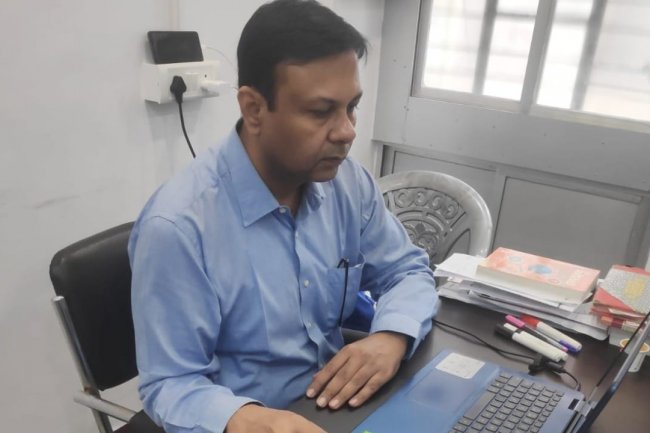Details on Funding Under Govt. Schemes (MSME)
The Reserve Bank of India (RBI) has deregulated all banks' credit-related issues, including interest charges, as part of the financial sector liberalization and is governed by the banks' own lending policies.

1. What are the guidelines for interest rates on loans disbursed by commercial banks in India?
As part of the liberalization of the financial sector, the Reserve Bank of India (RBI) has deregulated all banks' credit-related problems, including interest charges, and is controlled by the banks' own lending policies. With a view to increasing the transparency of banks' methodology for deciding advance interest rates and the efficacy of monetary policy transmission, banks are expected to approve all their advances with regard to the marginal cost of fund-based lending rates (MCLR) from 1 April 2016 onwards. Banks would have to provide customers with an option to move from the Base rate / Benchmark Prime Lending Rate (BPLR) to the MCLR and this should not be viewed as an existing facility foreclosure.
2. Why do small borrowers need to have a credit rating?
The credit rating of MSMEs by reputed credit rating agencies should be encouraged with a view to facilitating credit flow to micro, small, and medium-sized enterprises ( MSMEs) and improving the comfort level of lending institutions. Banks are advised to accept such ratings as per availability and to arrange their interest rates according to the ratings given to the borrowing MSMEs, where applicable.
3. Is credit rating mandatory for the MSE borrowers?
Credit rating is not compulsory, but it is in the interest of micro, small and medium-sized enterprises (MSMEs) to receive their credit rating as it will assist with the credit pricing of banks' loans.
4. What are the guidelines for delayed payment of dues to the MSE borrowers?
The purchaser is to make payment in India on or before the date agreed between him and the supplier. All Reserved Rights. In writing or, if no agreement is reached, before the specified day.
The buyer must not invest more than 45 days. If the purchaser fails to make payment of the amount to the supplier, the purchaser shall be liable to pay the compound interest owed to the supplier on a monthly basis in respect of the amount from the specified date or, on the accepted date, three times the bank rate informed by the Reserve Bank Of India. In the case of any goods supplied or services provided by the supplier, the customer is obliged to pay interest, as stated above. In the event of a dispute with respect to any amount due, a reference shall be made to the Facilitation Council of Micro and Small Enterprises, appointed by the Government of the State concerned. In order to take care of the payment obligations of large corporate borrowers to MSEs, banks have been instructed to set different sub-limits within the overall limits when sanctioning/renewing credit limits for their large corporate borrowers (i.e. borrowers enjoying working capital limits of $1.5 million and above from the banking system), explicitly for meeting payment obligations with respect to p. Banks are also advised by Reserve Bank Of India to closely track sub-limit operations, particularly with regard to the dues of their corporate borrowers to MSE units by periodically determining from their corporate borrowers the extent of their dues to MSE suppliers and ensuring that the company pays such dues before the 'appointed day' / agreed date by using the balance available in the sub-limit date IECD/5/08.12.01/2000-01 of 16 October 2000 (reiterated on 30 May 2003, vacuum circular No. IECD.No.20/08.12.01/2002-03) available on the Reserve Bank Of India website in this regard.
5. Is it mandatory to put all sick units under rehabilitation by banks?
No, it can be rehabilitated by the banks if a sick unit is considered potentially viable. The unit's feasibility is agreed upon by the banks. Only if such a status is evidenced by a viability analysis should a unit be considered viable?
6. What is the timeline for banks to implement the rehabilitation package?
A viable or potentially viable micro and small enterprises (MSE) which, in spite of debt restructuring, becomes sick must be rehabilitated and placed under the care of a bank within six months of the date on which that enterprise is declared viable or potentially viable. The bank / financial institution will be responsible for determining whether or not a sick MSE unit is potentially viable. The bank is expected to conduct a 'holding process' over the six-month duration of defining and enforcing the recovery package, which allows the sick unit to draw funds from the cash credit account at least to the degree of the deposit of the selling proceeds.
7. Is there any provision for the grant of composite loans by banks?
Banks can approve a $1.5 mn composite loan limit to allow MSME entrepreneurs to use their working capital and term loan requirements through Single Window.
8. How do banks assess the working capital requirements of borrowers?
Banks have been instructed to enforce credit policies properly approved by their Board of Directors for the expansion of credit facilities for the MSE sector (Refer to circular RPCD.SME & NFS.BC.No.102/06.04.01/2008-09 dated 4 May 2009). However, after careful consideration of the borrowers' genuine working capital needs, banks were advised to approve caps, taking into account their business cycle and short-term credit requirements. Working capital limits for SSI units are determined on the basis of a minimum of 20% of their projected turnover, up to a credit limit of $0.7 million, according to the Nayak Committee Report.
What's Your Reaction?




















